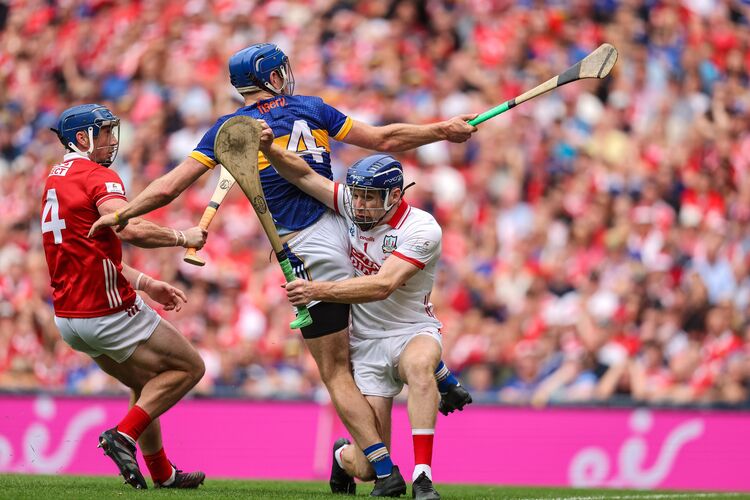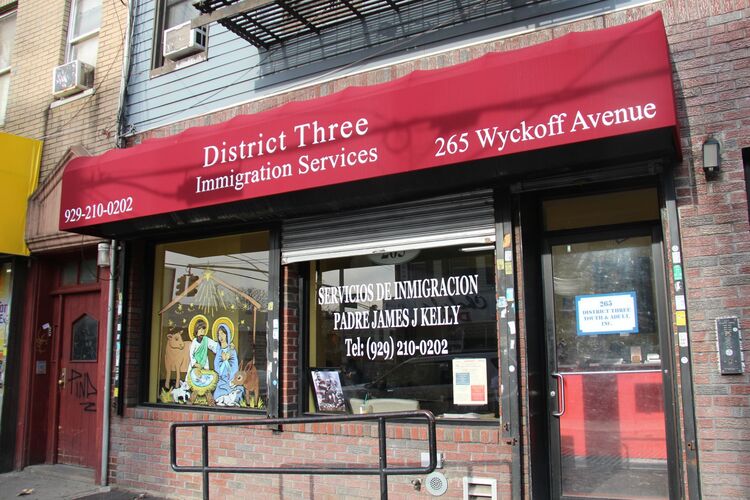Gerald Dawe.
Music Notes / By Colleen Taylor
Talking and writing about music is a delightful paradox of an exercise. Naturally, people love to discuss music—it’s arguably the most universal conversation starter. But as much as we want to detail and justify our particular tastes in music, we can never fully manage the task. After all, music always transcends language—that’s the whole point of it. But if anyone can push through the paradox, overcome the limitations of the written word on music, it’s Gerald Dawe. The Belfast poet’s new book on Van Morrison, “In Another World” moves past the paradox into a partnership of poetica and melody, written history and sound. This book is an extraordinary compilation of accounts: it’s a cultural history, an Irish biography of Van Morrison, a musical autobiography, and an astute social analysis of a music moment. Any lover of Van Morrison, any Baby Boomer, anyone with Belfast connections, anyone who loves the 1960s, or even Irish history at large, should read “In Another World.” Here, prose isn’t a supplement or response to music—it’s part of it.

For me, reading “In Another World” was like sitting at the dining room table with my family after a holiday dinner, listening to my aunts and uncles talk about the 1960s, what good music really sounded like back then, the good ol’ days when World War II had finally become a memory and teens could enjoy the resultant cultural fertility. I love
d those conversations as a girl, and I heard them again in the inviting, opening pages of Dawe’s book—the only difference being it was Belfast, not Brooklyn. In the introduction, Dawe writes with a casual familiarity, as he would to a friend, vividly setting the scene of his adolescence and Van Morrison’s music: “In the summer of 1970, sitting on the tiny balcony of my mother’s flat, which overlooked a square in an estate of houses in east Belfast, I was looking at the sky when ‘These Dreams of You’ came over the radio; the voice of my hometown.”
There are several protagonists in “In Another World”—Dawe and Morrison included —but the most important is Belfast itself. Dawe’s account consciously resists proscriptions of Beflast as a wartorn, “troubled” city. The book adds depth and nuance to both Van Morrison’s Irish background and the city of Belfast itself, illustrating “another” Belfast, one that readers will not be used to: a working-class city with a musical underground electrified by American soul. To ask why Belfast, of all places, would become a scene of R&B, blues, and jazz, Dawe says, is to adopt the clichés and reductionist history that limits Belfast’s cultural identity to sectarian conflict. As an alternative history, Dawe remembers Van Morrison’s pre-Troubles Belfast as a free, cultural space: “we had a wonderful time and it lasted until about 1970—the dancing, the music, the parties, being able to move throughout Belfast freely.” Under Dawe’s pen, Belfast becomes an easier, almost fictive space that birthed Van’s unique musical fusion. Morrison’s “Belfast voice,” his music’s sense of the “here,” Dawe explains, inspired his own poetry soon after.
Dawe also provides what I consider to be a virtually new social history of Irish music—accounting for 20th century Protestant band music as a footnote to the well-known history of Comhaltas Ceoltóirí Éireann and trad music in Ireland. The musical vibe of Van Morrison’s Protestant neighborhood in Belfast, Dawe explains, included church music, popular bands like the Beatles, as well as Northern Protestant marching bands dating back to the 19th century. These distinct cultural sounds—distinct, that is, from the Catholic national tradition—were the local backdrop to the Morrison family’s own unique taste for American R&B and jazz. From here, Van Morrison and his band Them became the sound of a new demographic in Northern Ireland, a young working and lower middle class community who responded to Belfast soul music across sectarian lines.
Other biographies of Van Morrison tend to turn him into a character, one that’s often tormented by some conflict of fame. Clinton Heylin’s biography, for instance, dubs him a “brilliant but disturbed” performer. But Dawe shows no interest in fictionalizing Van Morrison—in fact, he deliberately ignores the singer’s later fame and celebrity, much to Van Morrison’s relief, I’m sure. Ironically, Morrison, so much the center and purpose of this book, exists on the peripheries of the pages, and that’s because Dawe doesn’t aim to flesh out the singer’s persona. His goal is to flesh out his contexts instead, reconstruct the musical climate that created the groundbreaking album “Astral Weeks” (1968). This approach gives the book a refreshing spin on Van, concentrating on the surroundings of his music, rather than making spectacle of it. Dawe invites his readers to take part in the set design encircling Morrison’s performances.
“In Another World” makes an old, familiar album, “Astral Weeks,” and a long-familiar rock star, Van Morrison, utterly new again. It tells a new story of Belfast, a new account of the Irish Van Morrison, and becomes an important cultural and historical contribution in the process. Dawe’s nostalgic reverie resists the dominant narratives of Belfast, Van Morrison, and Irish music, and invites you into a simultaneously fresh and forgotten musical environment. But most impressive of all: “In Another World” turns melody into important cultural information, and that information back into melody again. Dawe makes it such that you can listen to “Astral Weeks,” and, while reading his book, be there too—in a different, 1960s Belfast, when R & B was louder than sectarianism.
Gerald Dawe’s “In Another World: Van Morrison and Belfast” (2018) is available through Merrion Press, Dublin.







